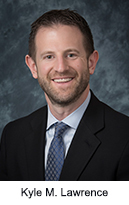
|
New Legislation Resulting From #MeToo Movement Affects New York State and City Employers
By Kyle M. Lawrence
With sexual harassment claims at the forefront of today’s news cycle, New York City and New York State have both recently taken legislative measures to curb the spread of sexual harassment, and also to assist employers who take the appropriate steps to mitigate problematic workplace situations. Signed into law by Mayor de Blasio on May 9, 2018, the Stop Sexual Harassment in NYC Act (the "NYC Act") imposes stringent anti-sexual harassment requirements for all New York City employers. At the state level, the New York State Budget Bill for Fiscal Year 2019 (the "Budget") further defines the obligations for state and city employers.
As the city’s current laws provide for the reduction or outright elimination of potential civil or punitive penalties where employers can prove that they have effective policies, programs and procedures in place and have complied with such policies, programs and procedures, these new laws give a clearer roadmap to employers who wish to protect themselves from liabilities in the event of a sexual harassment action brought against them.
New State Requirements:
Expansion of Definition of Sexual Harassment: The Budget expands the definition of sexual harassment to mean any “unwelcome sexual advances, requests for sexual favors, or other verbal or physical conduct of a sexual nature” if “made either explicitly or implicitly a term or condition of employment, or submission to or rejection of such conduct is used as the basis for employment decisions…or has the purpose or effect of unreasonably interfering with an individual’s work performance or creating an intimidating, hostile or offensive work environment.” This provision takes effect on October 9, 2018.
Mandatory Arbitration Provisions Prohibited: Agreements requiring the submission of sexual harassment claims to mandatory and binding arbitration, whether contained within employment agreements or standalone agreements, shall be void (unless such clause is included within a collective bargaining agreement). This prohibition takes effect on July 11, 2018.
Confidential Settlement Agreements for Sexual Harassment Claims Without Complainant Consent Prohibited: Also taking effect on July 11, 2018 is a prohibition on state courts from approving confidential settlement agreements for sexual harassment claims, unless (i) confidentiality is the complainant’s preference, (ii) the complainant has been given 21 days to consider the confidentiality provision and (iii) the complainant is given seven days in which to revoke his or her acceptance of said confidentiality provision.
Interactive Sexual Harassment Prevention Training: All private employers with 15 or more employees must now provide sexual harassment prevention training to all New York-based employees. This training will be required for existing employees on an annual basis and it must be “interactive,” defined by the law as “participatory teaching whereby the trainee is engaged in a trainer-trainee interaction, use of audio-visuals, computers or online training program or other participatory forms of training determined by the Commission.” This requirement becomes effective on October 9, 2018.
Sexual Harassment Policies: In addition to the foregoing, effective October 9, 2018, all New York employers must adopt a written policy that must contain, at a minimum, the following:
- A statement prohibiting sexual harassment
- Examples of prohibited conduct that would constitute sexual harassment
- Information concerning the federal and state statutory provisions concerning sexual harassment and remedies available to victims, along with a statement that there may be additional applicable laws
- A standard complaint form
- The procedure for timely and confidential investigations of complaints
- A statement informing employees of their rights of redress and available forums for adjudicating sexual harassment complaints administratively and judicially
- A statement that sexual harassment is a form of employee misconduct, and that sanctions will be enforced against individuals engaging in sexual harassment and managers and supervisory personnel who knowingly allow such behavior to continue
- A statement that retaliation against individuals reporting sexual harassment or who testify or assist in any proceeding is unlawful
New City Requirements:
Extension of Statute of Limitations: Individuals seeking to file a gender-based harassment claim within the New York City Commission on Human Rights will have a period of three years from the occurrence, instead of one year, in which to file a complaint before being statutorily barred from doing so. This change is effective immediately.
Interactive Training Requirements: In addition to the state-level changes described above, as of April 1, 2019, city employers will be required to conduct the sexual harassment prevention training for all newly hired employees within 90 days of the hire date for any employees (including interns) who will work more than 80 hours in a calendar year.
Poster and Information Sheet: Effective September 6, 2018, city employers must comply with new poster and information sheet distribution requirements. While this information has not yet been released, the guidelines are scheduled to be released prior to the effective date.
The above is merely a summary of the new legislative developments and is not intended to be a comprehensive analysis of every aspect of the NYC Act or the Budget, nor is it meant to be construed as legal advice for you or your business. Most employers in New York will need to review contractual provisions in existing employment agreements, update their employee handbooks (or similar internal policies), implement training programs or update existing programs to ensure compliance with these new laws.
If you have any questions regarding these provisions, please contact me by emailing KLawrence@swc-law.com or calling (516) 228-1300.
|



